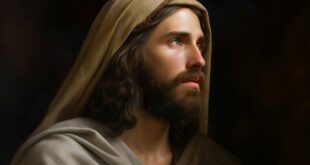In the parable of the 10 virgins, some people mistakenly suppose the foolish virgins, who are shut out of the presence of the bridegroom, are unbelievers. But scripture shows a different reality:
“Then the kingdom of heaven will be comparable to ten virgins, who took their lamps and went out to meet the bridegroom. Five of them were foolish, and five were wise. For when the foolish took their lamps, they took no oil with them, but the wise took oil in flasks along with their lamps. Now while the bridegroom was delaying, they all got drowsy and began to sleep. But at midnight there was a shout, ‘Here’s the bridegroom! Come out to meet him.’ Then all those virgins rose and trimmed their lamps. The foolish said to the wise, ‘Give us some of your oil, for our lamps are going out.’ But the wise answered, ‘No, there will not be enough for us and you too; go instead to the dealers and buy some for yourselves.’ And while they were going away to make the purchase, the bridegroom came, and those who were ready went in with him to the wedding feast; and the door was shut. Later the other virgins also came, saying, ‘Lord, lord, open up for us.’ But he answered, ‘Truly I say to you, I do not know you.’ Be on the alert then, for you do not know the day nor the hour” (Matthew 25:1-13).
Symbolism of the lamp and of the oil
A lamp in scripture is often a metaphor for God’s word and its illuminating effect when we follow His instructions. “Your word is a lamp to my feet and a light to my path” (Ps. 119:105. Proverbs 6:23 says, “For the commandment is a lamp and the teaching is light.” A lamp is also used to describe the spirit of man, as Proverbs 20:27 states: “The spirit of man is the lamp of the Lord, searching all the innermost parts of his being.”
In this parable all the virgins (symbolic of the church, which throughout scripture is referred to as a bride preparing for her wedding) are equipped with lamps, and all 10 of them are going out to meet the bridegroom (Matt. 25:1). Both the wise and the foolish therefore are Christians.
Oil is symbolic of the Holy Spirit (see Lev. 2:1-2, Lev. 8:12, Ps. 133:2, Isaiah 61:3, Luke 4:18, Acts 10:38, et al). In the tabernacle in the wilderness, God’s instructions were that His people should bring “clear oil of beaten olives for the light, to make a lamp burn continually” (Ex. 27:20). In this foreshadowing of the Holy Spirit, it was imperative that the light not go out.Therefore, the key element that distinguishes the five wise from the five foolish is having “enough of” the Holy Spirit.
Darkness and a delayed bridegroom
Notice in verse five of the parable it says that “the bridegroom was delaying.” All 10 virgins were expecting Him, but He wasn’t appearing as soon as they were anticipating. The consequence of this was that both the foolish and the wise got drowsy and fell asleep. Like Jesus’ disciples in Gethsemane, they weren’t on the alert as He’d asked them to be. But at midnight, “like a thief in the night” (see 1 Thess. 5:2, 2 Peter 3:10, Rev. 16:15) there was a shout – an announcement of the imminence of the Bridegroom.
This is a description of the time leading up to Christ’s return (v. 13), and that these are people with access to the lamp of God – His precepts and requirements. Without the continual overflow of and reliance upon the Holy Spirit, there will be believers – even those who have known the scriptures – who find themselves with the terrifying prospect of a door slammed in their faces, and the equally horrifying words, “I do not know you” spoken to them by Christ. These are the same words Jesus says He will assign to the evildoers (see Matthew 7:21-23) and the hypocrites (Luke 12:46).
There are churches that give careful attention to the scriptures and which nurture an understanding of the word – or certain parts of it – but neglect the teaching and inviting in of The Holy Spirit. But without the Holy Spirit, we can’t even properly understand the depths of the Bible, even though we might know entire books of it by heart. The pressures of our culture are squeezing professing Christians into calling “what is evil is good and substituting darkness for light” (Is. 5:20).
My prayer for myself and for the church as a whole is that we will draw near to God, that we might have the spiritual sight and fortitude to persevere through the darkness and not miss the Bridegroom’s return.
Have you asked for more oil (Luke 11:13)? How do you know you’re ready for Christ’s return?
 The Bottom Line, Ministries Christian News, Articles, & Poetry
The Bottom Line, Ministries Christian News, Articles, & Poetry 




